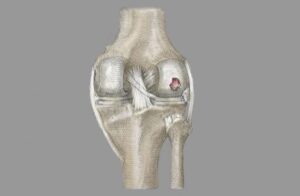In the rapidly evolving healthcare landscape, technology integration has become a pivotal force, revolutionizing various facets of the industry. One such area that has witnessed a remarkable transformation is medical billing. Traditionally considered a cumbersome and time-consuming process, medical billing has undergone a paradigm shift with the infusion of cutting-edge technology. This article will explore how technology enhances medical billing efficiency, streamlines operations, reduces errors, and ultimately improves the healthcare ecosystem.
Automation: A Catalyst for Medical Billing Efficiency
Automation stands at the forefront of technological advancements in medical billing. The manual entry of data, a process prone to human errors, is now being replaced by sophisticated software solutions. Automated billing systems expedite the billing cycle and significantly reduce the likelihood of mistakes. These systems can intelligently interpret complex medical codes by leveraging artificial intelligence (AI) and machine learning algorithms, ensuring accurate and error-free submissions.
Moreover, automation eliminates the need for repetitive tasks, allowing healthcare professionals to redirect their focus toward more value-driven activities. As a result, administrative medical billing efficiency is greatly enhanced, and resources are optimized for improved patient care.
Real-Time Eligibility Verification
One of the persistent challenges in medical billing has been the verification of insurance eligibility. Technology has addressed this concern by introducing real-time eligibility verification systems. These systems connect directly with insurance providers, allowing healthcare providers to ascertain a patient’s coverage status instantly.
Real-time eligibility verification expedites the billing process and reduces the likelihood of claim denials due to outdated or inaccurate insurance information. This improves revenue cycles and enhances the overall patient experience by providing clarity on financial responsibilities upfront.
Electronic Health Records (EHRs): A Unified Approach
Adopting Electronic Health Records (EHRs) has been a transformative leap for the healthcare industry. In medical billing, EHRs serve as a centralized repository for patient information, streamlining the entire billing workflow. Integrating billing functionalities within EHR systems ensures that all relevant data, including patient demographics, treatment plans, and billing codes, are readily accessible.
This unified approach minimizes data redundancies and mitigates the risks of fragmented information. The result is a more efficient and accurate billing process, with reduced chances of errors or oversights.
Telehealth and Remote Patient Monitoring
The surge in telehealth services, particularly accelerated by the global events of recent times, has brought forth a new dimension to medical billing efficiency. With telehealth, healthcare providers can deliver services remotely, transcending geographical barriers. This not only enhances accessibility to healthcare but also introduces new billing modalities.
Technology enables the seamless integration of telehealth services into existing billing systems, ensuring that healthcare professionals are appropriately compensated for virtual consultations. Similarly, remote patient monitoring technologies allow for continuous data collection, creating proactive and preventive care opportunities with corresponding billing mechanisms in place.
Blockchain Technology: Ensuring Security and Transparency
In an era where data security is paramount, blockchain technology has emerged as a game-changer in medical billing. The decentralized nature of blockchain ensures that sensitive patient information is secure and tamper-proof. This safeguards patient data and engenders trust in the billing process.
Additionally, blockchain’s transparent and traceable nature can streamline the auditing process, providing a verifiable trail of transactions. This facilitates compliance with regulatory requirements and expedites the resolution of billing discrepancies, fostering a more efficient and accountable billing ecosystem.
Mobile Health (mHealth) Applications: Empowering Patients
The proliferation of mobile health applications has empowered patients to take an active role in managing their health. From appointment scheduling to accessing medical records, these applications offer a range of functionalities. In medical billing, mHealth apps can facilitate secure and convenient payment options.
By integrating billing functionalities into these applications, patients can receive and pay bills, view insurance statements, and track their healthcare expenses in real time. This enhances the overall patient experience and reduces the administrative burden on healthcare providers.
Artificial Intelligence in Revenue Cycle Management
Incorporating artificial intelligence (AI) in revenue cycle management has ushered in a new era of medical billing efficiency. AI algorithms can analyze historical billing data to identify patterns and trends, enabling predictive analytics for revenue forecasting. This foresight allows healthcare providers to proactively address potential issues, minimizing the impact on revenue cycles.
Moreover, AI-driven tools can identify areas of improvement in the billing process, suggesting optimizations for increased efficiency. These tools contribute to a dynamic and responsive revenue cycle management strategy by continuously learning and adapting.
Interoperability: Bridging the Gaps
Interoperability, the seamless exchange of information between different healthcare systems, is a crucial enabler of enhanced medical billing efficiency. As healthcare providers often use diverse software solutions, ensuring interoperability becomes critical for a cohesive billing ecosystem.
Technology facilitates interoperability by establishing standardized communication protocols, allowing different systems to exchange information seamlessly. This not only reduces manual interventions and data silos but also enhances the accuracy and speed of the billing process.
Predictive Analytics for Denial Prevention
One of the persistent challenges in medical billing is the high rate of claim denials. Predictive analytics, powered by machine learning algorithms, can analyze historical data to identify patterns leading to denials. By understanding the root causes of denials, healthcare providers can implement preventive measures to mitigate future issues.
This proactive approach reduces the administrative burden associated with claims re-submissions and improves cash flow by minimizing the impact of denied claims on revenue cycles.
Also Read:
- Social Boost: Attracting Patients for Your Practice
- Safeguarding Your Medical Practice: Essential Protection Tips
Medical Billing Efficiency: Conclusion
In conclusion, integrating technology into medical billing processes has ushered in a new era of medical billing efficiency, accuracy, and transparency. Each technological advancement is pivotal in optimizing the billing workflow, from automation and real-time eligibility verification to blockchain security and predictive analytics.
As healthcare continues to evolve, embracing these technological innovations becomes imperative for providers to stay ahead in an ever-changing landscape. By doing so, healthcare organizations enhance their operational efficiency and contribute to an improved and seamless experience for providers and patients alike.









